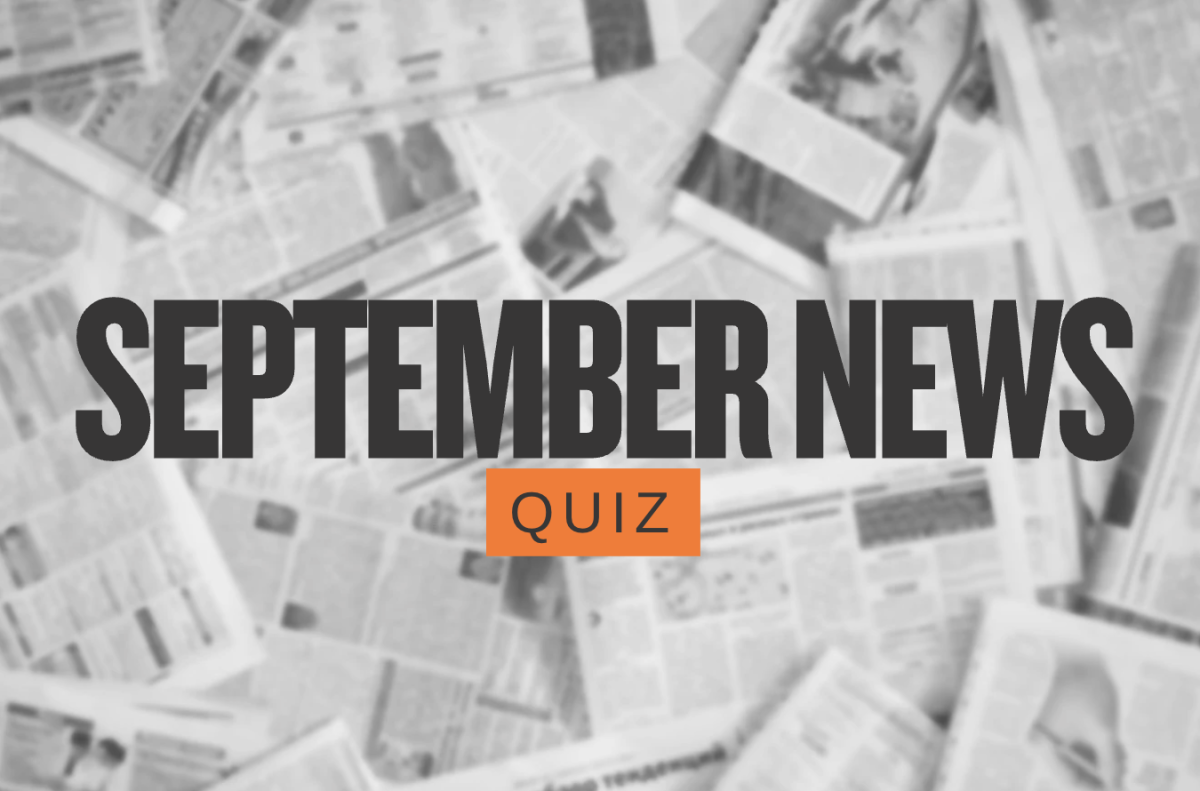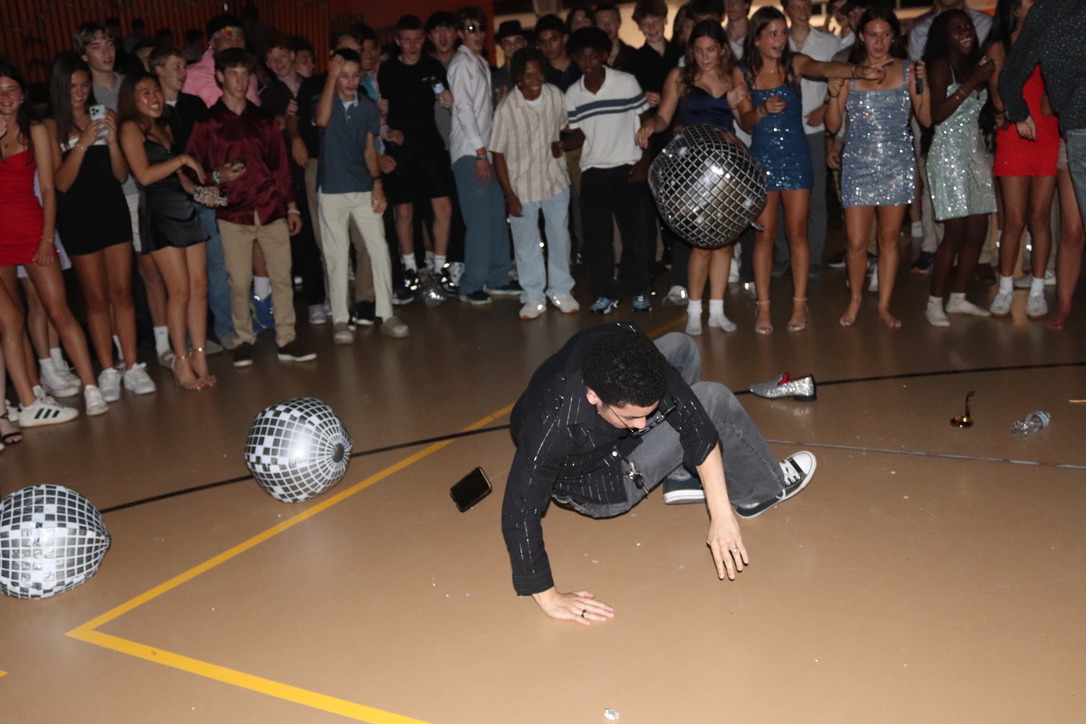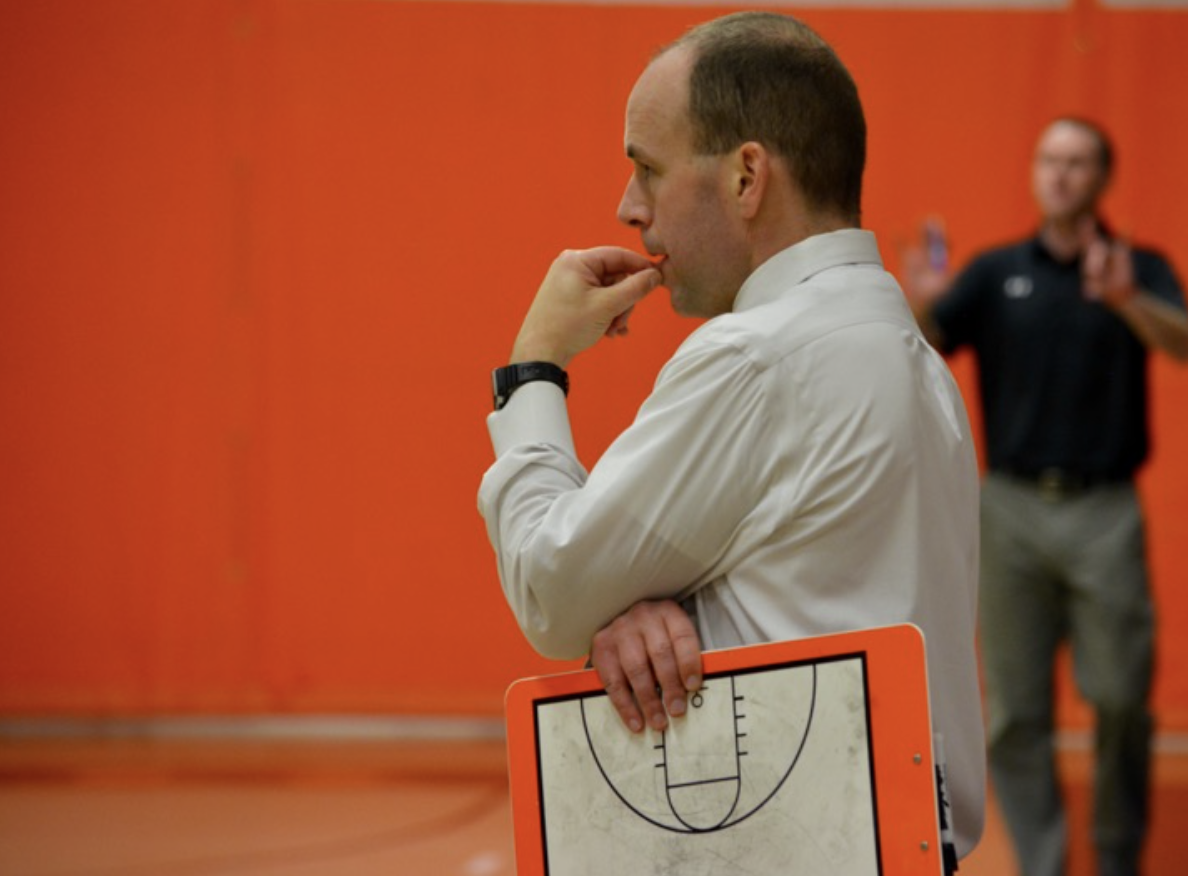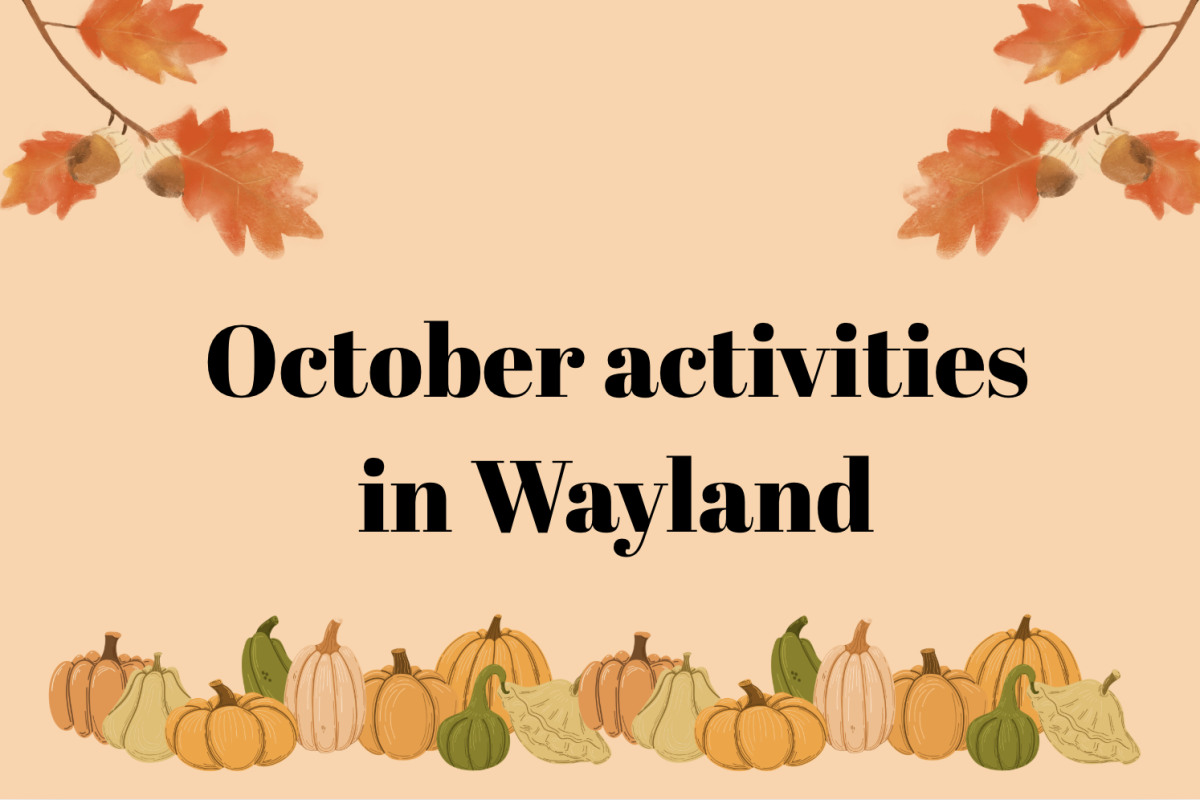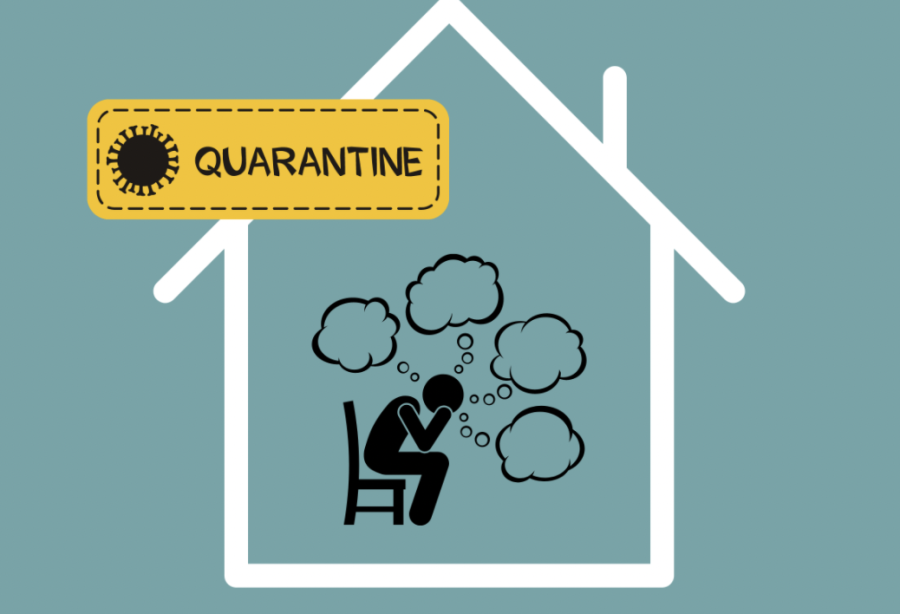Students reflect on quarantine experience without a virtual learning option
Students who contract COVID-19 or one of its variants don’t have the option to attend virtual classes during the mandatory quarantine period this year. Students are left to organize their school work on their own and keep up with classwork through texting friends, emailing teachers and monitoring Google Classroom.
March 9, 2022
For the 193 students who have tested positive for COVID-19 at Wayland High School this school year, quarantine looks like staying in a bedroom for days on days, lying in bed with eyes glued to devices and FaceTiming friends in fear of being left out.
In the bigger picture, quarantine is a positive thing, as students are keeping themselves and others safe. However, as time slowly ticks away, isolated from all their loved ones, student’s mental, and in some cases physical, well-being can take a hit.
For everyone that contracts COVID-19, they are required to quarantine for five days.
“I was alone a bunch and I was really, really angry because I wasn’t seeing anyone, and I just felt lonely and bored,” sophomore Brandon Jenkins said.
Boredom is never a good feeling, especially when being alone. Being isolated with nothing to do results in a lot of thinking that can take a toll on your mental state. Studies show that isolation can affect sleeping habits, raise anxiety levels and even cause depression.
“I felt there was no hope for me to be happy during my quarantine,” Jenkins said.
Since the recent spike of COVID-19 struck toward the end of the second quarter at WHS, many students who tested positive were impacted academically as they were out of school for several days, often missing assessments and coverage in many classes.
“I missed a bunch,” Jenkins said. “I missed my whole history project so my grade dropped tremendously.”
Because tuning into class through Zoom is not an option this year, students have the responsibility to reach out to their teachers about work, even if they are sick.
“I could mostly keep up with the work because teachers would post most of [it] in Google Classroom,” junior Noah Malkin said. “I was emailing teachers and texting friends to see what was happening in class.”
Without the availability of online school and despite most teachers’ best efforts, students are left having to piece together what they are supposed to be learning. Many gather pictures of notes from their friends and monitor the assignments that show up on their Google Classroom.
“Recordings of the lessons would have helped me so I could have seen what was going on,” freshman Addison Nugent said.
On top of stress about missing school work, some students who test positive experience symptoms as well. With symptoms ranging from a small cough to a high fever, abilities to keep up with school work and their social life can decline.
“I did not do much as I felt pretty sick,” Malkin said. “I missed school from Monday through Thursday which was difficult as I missed several tests.”
Senior Ella Perryman, however, contracted COVID-19 over winter break and remained asymptotic. Instead of having to keep up on school work, she was able to utilize the free time to relax. Furthermore, she fortunately was quarantined with her friend as they tested positive at the same time.
“I enjoyed getting time to relax in the comfort of my own house and that I wasn’t alone during it,” Perryman said. “I think my experiences would have differed if I had to quarantine by myself because I would’ve felt more isolated.”
Because Perryman was with a friend, she felt her experience of quarantining differed to that of Jenkins who felt that it was a negative for their emotional health.
“I think it was good for my mental health actually because I had a lot of time to hangout with my friend before she left, and we got to relax before going back to school,” Perryman said.
Quarantine can be handled differently by each person. Whether it’s watching movies, completing school work or doing nothing, one’s mental state can shift, and it’s important to be aware of any changes that may be impacting one’s mental health.
“Honestly, the key word during quarantine, I would say, was patience,” Jenkins said. “Everything will get better, and it did. I just learned how to have fun by myself.”

![During the WHS club fair, senior Molly Bergeron is watching a student sign up for her club, Eliza J. Norton Foundation. In this club, students meet every week and come up with ideas to spread the message. "[This club] really touches a lot of people in the town," Bergeron said.](https://waylandstudentpress.com/wp-content/uploads/2025/10/IMG_1335-1200x800.jpg)


